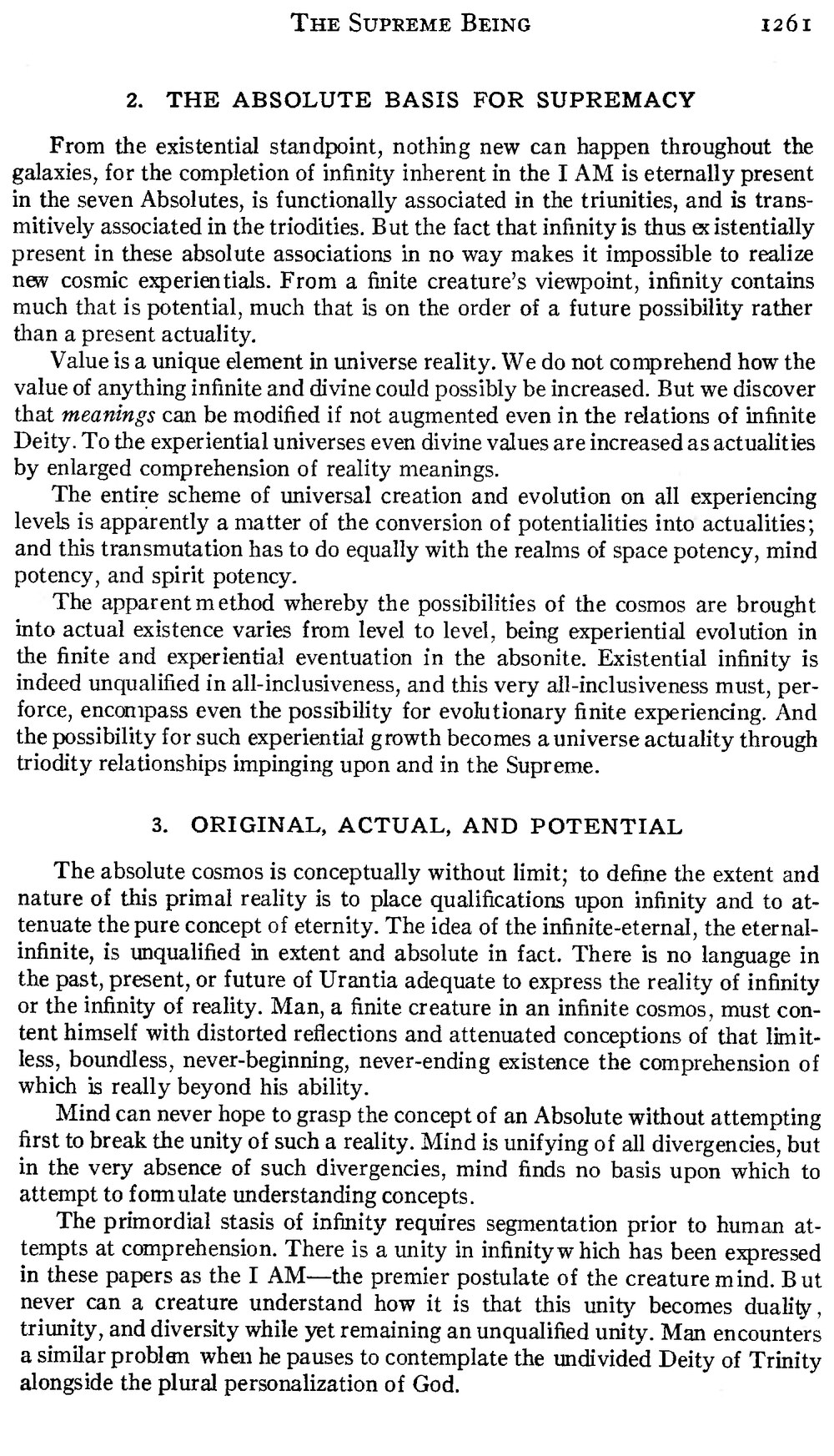From the existential standpoint, nothing new can happen throughout the galaxies, for the completion of infinity inherent in the I AM is eternally present in the seven Absolutes, is functionally associated in the triunities, and is transmitively associated in the triodities. But the fact that infinity is thus existentially present in these absolute associations in no way makes it impossible to realize new cosmic experientials. From a finite creature's viewpoint, infinity contains much that is potential, much that is on the order of a future possibility rather than a preent actuality.
Value is a unique element in universe reality. We do not comprehend how the value of anything infinite and divine could possibly be increased. But we discover that meanings can be modified if not augmented even in the relations of infinite Deity. To the experiential universes even divine values are increased as actualities by enlarged comprehension of reality meanings.
The entire scheme of universal creation and evolution on all experiencing levels is apparently a matter of the conversion of potentialities into actualities; and this transmutation has to do equally with the realms of space potency, mind potency, and spirit potency.
The apparent method whereby the possibilities of the cosmos are brought into actual existence varies from level to level, being experiential evolution in the finite and experiential eventuation in the absonite. Existential infinity is indeed unqualified in all-inclusiveness, and this very all-inclusiveness must, perforce, encompass even the possibility for evolutionary finite experiencing. And the possibility for such experiential growth becomes a universe actuality through triodity relationships impinging upon and in the Supreme.
The absolute cosmos is conceptually without limit; to define the extent and nature of this primal reality is to place qualifications upon infinity and to attenuate the pure concept of eternity. The idea of the infinite-eternal, the eternal-infinite, is unqualified in extent and absolute in fact. There is no language in the past, present, or future of Urantia adequate to express the reality of infinity or the infinity of reality. Man, a finite creature in an infinite cosmos, must content himself with distorted reflections and attenuated conceptions of that limitless, boundless, never-beginning, never-ending existence the comprehension of which is really beyond his ability.
Mind can never hope to grasp the concept of an Absolute without attempting first to break the unity of such a reality. Mind is unifying of all divergencies, but in the very absence of such divergencies, mind finds no basis upon which to attempt to formulate understanding concepts.
The primordial stasis of infinity requires segmentation prior to human attempts at comprehension. There is a unity in infinity which has been expressed in these papers as the I AM—the premier postulate of the creature mind. But never can a creature understand how it is that this unity becomes duality, triunity, and diversity while yet remaining an unqualified unity. Man encounters a similar problem when he pauses to contemplate the undivided Deity of Trinity alongside the plural personalization of God.
